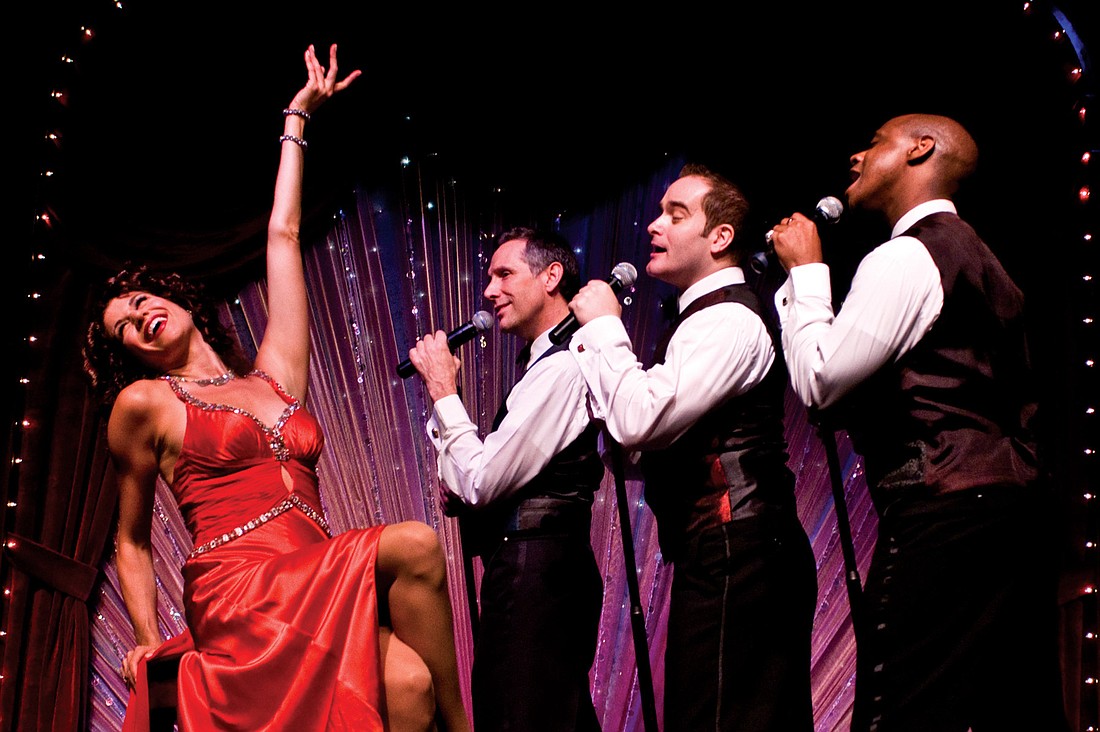- April 11, 2025
-
-
Loading

Loading

A sophisticated strut through the 1950s and ’60s, “That’s Life, Again,” Florida Studio Theatre’s opening cabaret season production, is a crowd-pleasing croon-fest.
Developed by Richard Hopkins, Rebecca Hopkins and pianist Jim Prosser, the show treats us to an eclectic selection of some of the era’s best-known songs, opening with Frank Sinatra’s “New York, New York.” The music zigzags the “Hit Parade” to include such diverse selections as “Nature Boy,” “Route 66,” “Me and My Shadow” and “I Got Rhythm.” Then, for a finale, Sinatra, of course, and an oh-so-satisfying, “That’s Life.” The talented cast swings, hoofs and sways its way through one lively number after the other with the aid of the clever choreography and direction of Dennis Courtney.
Musical Director John Franceschina brings forth a marvelous nuance of notes in the musical arrangements, turning many of the numbers from the familiar to the pleasantly unexpected.
Eric Collins is even better than I recall from seeing him in the big cabaret hit, “The Wanderers,” last year at FST. His fabulous voice shines in solos and in lilting harmony, especially in “Once Upon a Time.”
Stephen Hope, the only actor who wasn’t in the original production, is also the only actor to evoke echoes of the suave, sophisticated Rat Pack era. He portrays that insouciant, “Don’t bother me; I’m drinking,” attitude of Las Vegas crooners such as Dean Martin.
Arthur W. Marks displays an abundance of smooth moves and a haunting voice. His “Mr. Bojangles” stands out as original and poignant.
Stacey Harris has a big, exciting voice and a stunning silhouette to boot, artfully shown off by costume designer, Susan Angermann. In keeping with the social mores of the ’50s, the only female gets all the “cutesy-wootsy” tunes oozing with sexual innuendo. She’s either offering kisses or food, as in the Italian “Botch-A-Me” (kiss me) and “Never on a Sunday.”